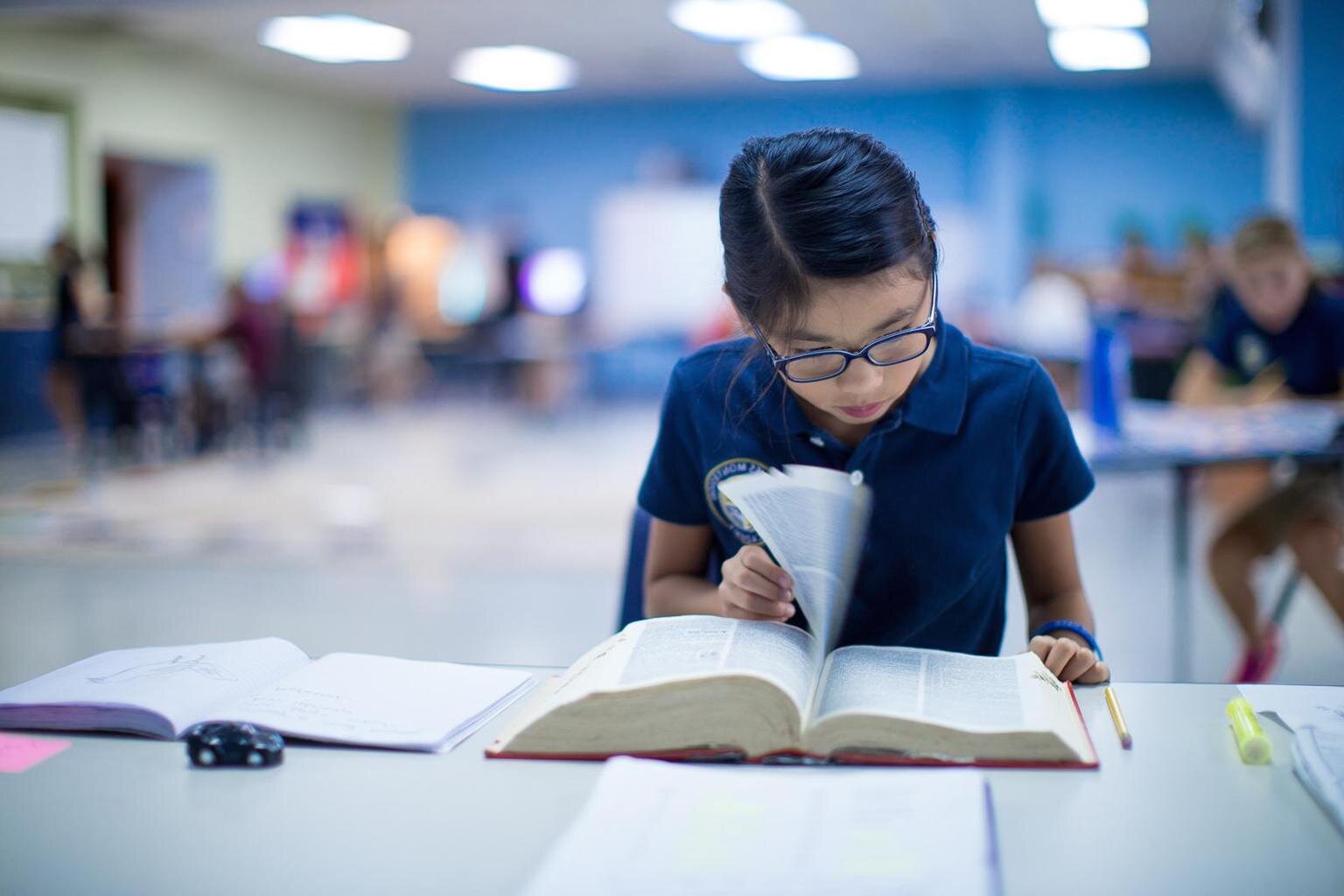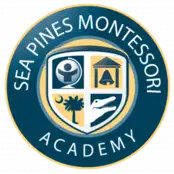Upper Elementary
Ages 9 - 12 / Grades 4th through 6th
Building on a Strong Foundation
Upper elementary students expand upon the solid foundation they've acquired in the lower elementary classroom as they transition towards abstract concepts. Through a spiral curriculum approach, we are confident that children can grasp intricate subjects when presented clearly and revisited regularly.
Building an Independent & Self-Reliant Course of Study
Concepts are revisited in more detailed studies, and as students approach adolescence they grow into more motivated, confident, and responsible learners. The environment encourages the cultivation of personalities, with each student experiencing a balance of social interaction, academic preparation, and a growing awareness of the world around them.
Individually Paced Mathematics
The focus of the upper elementary mathematics curriculum is metacognition. Children revisit traditional elementary mathematic concepts introduced in the concrete in lower elementary. Students are encouraged to put language to mathematical processes through personal discovery. By recognizing and documenting these patterns and relationships, students internalize mathematical concepts with a much deeper level of understanding than the traditional classroom allows. The study of geometry increases and takes on more advanced concepts.


Children parallel language arts instruction with small group “book clubs” based on classic and contemporary fiction. Students encounter ‘real world’ examples of language studies to foster a love of literature.
— Quote Source
Students explore and experiment with multiple genres of writing including fiction, nonfiction, reference, biography, essay, and poetry. The Sea Pines Montessori Academy writing curriculum is based on the 6+1 Traits of writing. All students take part in a weekly “Writer’s Workshop.”.
Children of elementary age are “societal explorers.”
They are finding their place outside of the family. One of
the unique characteristics of the Montessori classroom
is its sense of community. Each student has an active
role in the classroom as a whole, as well as in his/her
own learning path. It is a cooperative environment that
encourages time management, problem-solving, and
critical thinking inside the classroom and out in the world.
Students engage in detailed scientific study. Starting with the macroscopic study of the universe, they move sequentially to the microscopic study of cells. Students take an active role in study through participation in scientific experimentation utilizing the scientific method. Scientific studies include Astronomy, Geology, Physics, Biology, and Chemistry.
Students broaden their understanding through comprehensive research projects, both independently and in collaborative settings. They learn the skills of effective planning and teamwork to successfully complete assignments. Subsequently, they are provided with the chance to present their findings to their peers, fostering communication and sharing of knowledge within the group.






